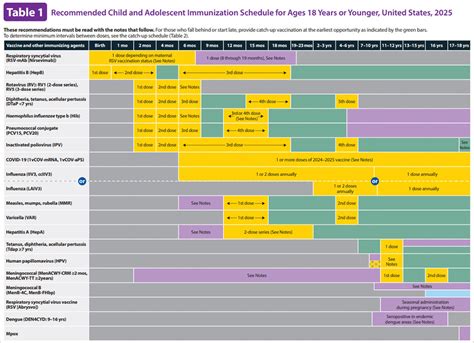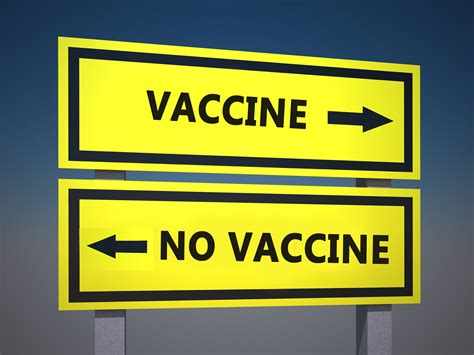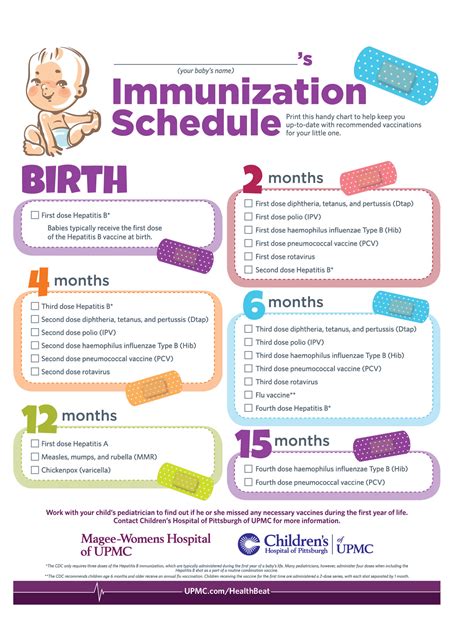Intro
Learn about essential 4 year old vaccination shots, including MMR, DTaP, and polio boosters, to protect against infectious diseases and ensure child health, development, and immunity.
As a parent, ensuring your child's health and well-being is of utmost importance. Vaccinations play a crucial role in protecting children from serious diseases and preventing the spread of infections. At four years old, children are due for a series of vaccination shots that will help boost their immune system and provide long-term protection against various diseases. In this article, we will delve into the world of vaccinations, exploring the importance of immunization, the types of vaccines recommended for four-year-olds, and the benefits of staying up-to-date on vaccination schedules.
Vaccinations have been instrumental in controlling and eliminating many infectious diseases that were once prevalent. By vaccinating your child, you are not only protecting them from serious illnesses but also contributing to the overall health and well-being of your community. The Centers for Disease Control and Prevention (CDC) and the American Academy of Pediatrics (AAP) recommend a series of vaccinations for children at different stages of their development, including at four years old. These vaccinations are designed to provide protection against diseases such as measles, mumps, rubella, and chickenpox, among others.
As a parent, it's natural to have questions and concerns about vaccinations. You may wonder about the safety and effectiveness of vaccines, the potential side effects, and the importance of adhering to the recommended vaccination schedule. In this article, we will address these concerns and provide you with a comprehensive understanding of the vaccination shots recommended for four-year-olds. We will also explore the benefits of vaccinations, the risks associated with not vaccinating, and the importance of staying informed and up-to-date on the latest vaccination guidelines.
Introduction to Vaccinations

Vaccinations work by introducing a small, harmless piece of a virus or bacteria to the body, which triggers the immune system to produce antibodies. These antibodies help fight off the infection and provide long-term protection against future exposures. Vaccines can be made from weakened or killed viruses or bacteria, and they can also be made from components of the virus or bacteria, such as proteins or sugars. The type of vaccine used depends on the disease being targeted and the age and health status of the individual being vaccinated.
Types of Vaccines
There are several types of vaccines, including: * Inactivated vaccines: These vaccines contain killed viruses or bacteria and are often used to protect against diseases such as flu and hepatitis A. * Live, attenuated vaccines: These vaccines contain weakened viruses or bacteria and are often used to protect against diseases such as measles, mumps, and rubella. * Conjugate vaccines: These vaccines combine a weakened virus or bacteria with a carrier protein to enhance the immune response. * Toxoid vaccines: These vaccines contain inactivated toxins produced by bacteria and are often used to protect against diseases such as diphtheria and tetanus.Vaccination Schedule for 4-Year-Olds

The CDC and AAP recommend a series of vaccinations for children at four years old. These vaccinations include:
- DTaP (diphtheria, tetanus, and pertussis) vaccine
- MMR (measles, mumps, and rubella) vaccine
- Varicella (chickenpox) vaccine
- Polio vaccine
- Flu vaccine (annual)
These vaccinations are designed to provide protection against serious diseases and to boost the immune system. It's essential to follow the recommended vaccination schedule to ensure your child receives the best possible protection against infectious diseases.
Benefits of Vaccinations
Vaccinations offer numerous benefits, including: * Protection against serious diseases: Vaccines provide long-term protection against infectious diseases, reducing the risk of serious illness and death. * Boosts immune system: Vaccines help boost the immune system, reducing the risk of future infections. * Prevents spread of disease: Vaccines help prevent the spread of infectious diseases, protecting not only the individual but also the community. * Reduces risk of complications: Vaccines reduce the risk of complications from infectious diseases, such as pneumonia, meningitis, and encephalitis.Common Concerns and Misconceptions

As a parent, it's natural to have concerns and questions about vaccinations. Some common concerns include:
- Safety: Vaccines are thoroughly tested for safety and efficacy before they are approved for use.
- Side effects: While vaccines can cause side effects, such as redness, swelling, and fever, these are typically mild and temporary.
- Effectiveness: Vaccines are highly effective in preventing infectious diseases, but no vaccine is 100% effective.
It's essential to address these concerns and misconceptions to ensure parents have accurate information about vaccinations. By understanding the benefits and risks of vaccinations, parents can make informed decisions about their child's health.
Risks of Not Vaccinating
Not vaccinating your child can have serious consequences, including: * Increased risk of infectious diseases: Unvaccinated children are at a higher risk of contracting infectious diseases, which can lead to serious illness and death. * Spread of disease: Unvaccinated children can spread infectious diseases to others, including those who are vulnerable, such as the elderly and young children. * Outbreaks: Unvaccinated children can contribute to outbreaks of infectious diseases, which can have serious consequences for public health.Staying Informed and Up-to-Date

It's essential to stay informed and up-to-date on the latest vaccination guidelines and recommendations. The CDC and AAP provide regular updates on vaccination schedules and recommendations, and parents can stay informed by:
- Consulting with their child's healthcare provider
- Visiting the CDC and AAP websites
- Reading reputable sources of information
By staying informed and up-to-date, parents can ensure their child receives the best possible protection against infectious diseases.
Conclusion and Next Steps
In conclusion, vaccinations are a crucial part of maintaining good health and preventing the spread of infectious diseases. By understanding the importance of vaccinations, the types of vaccines recommended for four-year-olds, and the benefits of staying up-to-date on vaccination schedules, parents can make informed decisions about their child's health. If you have concerns or questions about vaccinations, consult with your child's healthcare provider or visit reputable sources of information.What is the recommended vaccination schedule for 4-year-olds?
+The CDC and AAP recommend a series of vaccinations for children at four years old, including DTaP, MMR, Varicella, Polio, and Flu vaccines.
Are vaccines safe and effective?
+Yes, vaccines are thoroughly tested for safety and efficacy before they are approved for use. While vaccines can cause side effects, these are typically mild and temporary.
What are the risks of not vaccinating my child?
+Not vaccinating your child can increase the risk of infectious diseases, spread of disease, and outbreaks. Unvaccinated children can also contribute to outbreaks of infectious diseases, which can have serious consequences for public health.
We hope this article has provided you with a comprehensive understanding of the vaccination shots recommended for four-year-olds. If you have any further questions or concerns, please don't hesitate to comment below. Share this article with your friends and family to help spread awareness about the importance of vaccinations. Together, we can work towards creating a healthier and safer community for everyone.
